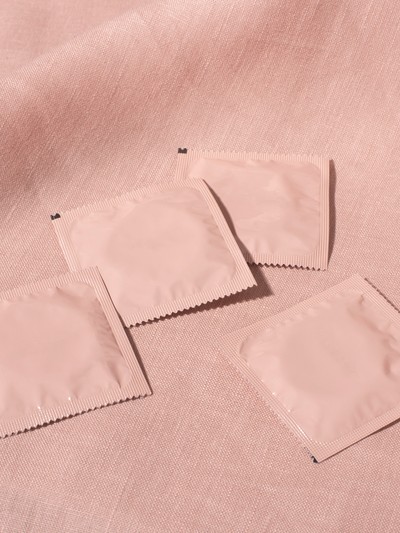

STIs Are On The Rise: What You Need To Know & How To Protect Yourself
What are the latest figures?
“STIs are on the rise. Since 2012, cases of chlamydia, gonorrhoea and herpes have risen. The number of people diagnosed with these infections in the 50-90-year-old age bracket has doubled from 2002 to 2012 in the UK. The number of STIs recorded amongst over 65s also increased 20% from 2017 to 2019, with the biggest increases in chlamydia and gonorrhoea.” – Miss Tania Adib, consultant gynaecologist at The Lister Hospital
What’s the reason behind these numbers?
“There are several reasons. Firstly, the steady incline in the number of divorces means that women are more confident in looking for a new partner. It’s also possible this could be due to the fact that erectile dysfunction drugs, such as Viagra, are now being sold over the counter, and HRT drugs are giving some women of menopausal age a new sex drive, consequently increasing sex amongst the 50+ age group.” – Miss Adib
“The majority of sexual health campaigns still target a younger demographic, meaning older women are therefore less aware about their risks of getting an STI. During a medical consultation, older women are less likely to discuss STIs and sexual health with their GP, meaning they will assume incorrectly they are less sexually active and will avoid the topic as a result. A lot of it comes down to sex education, too. Compared to the current curriculum, there would have been less focus on sexual education when they were in school. Moreover, women over 50 are less likely to use a condom if there is no risk of pregnancy, although we know there’s more to protection than preventing pregnancy.” – Miss Julie Bowring, consultant gynaecologist at London Gynaecology
Do changing hormone levels later in life protect you from an STI?
“This is one of the many myths surrounding STIs in the 50+ category. There is actually evidence to suggest post-menopausal women are more vulnerable to STIs due to the physical changes their bodies are experiencing.” – Miss Adib
Do STIs always have symptoms?
“It’s a good idea to educate yourself as much as you can about the symptoms associated with STIs – especially if you are having unprotected sex with a new partner – as they can present differently in different people and can also be entirely asymptomatic. As you age, the immune system naturally becomes less effective at fighting off illness and infection, and some STI symptoms, such as fever, sore throat and swollen lymph nodes, may also be confused with signs of another infection, meaning an STI can go undiagnosed.” – Valentina Milanova, women’s health expert at Daye
So, what are the main symptoms you should look out for?
“Common things to look out for include a burning or painful sensation during urination, unusual bleeding from the vagina, smelly discharge or swollen lymph nodes in the groin. The time it takes for STI symptoms to appear after exposure depends on the specific STI. Here is a general overview of symptoms, what to look out for and incubation periods by infection type…
- HIV: The incubation period for HIV is typically two to four weeks, although it can take as long as several months for signs to appear. Early signs of HIV include flu-like symptoms such as fever, fatigue and/or a sore throat, body rashes, swollen lymph glands, mouth ulcers, muscle and joint pain, nausea and vomiting, night sweats and unexplained weight loss.
- Chlamydia: The incubation period for chlamydia is between seven to 21 days. Symptoms of chlamydia in women include itching in the urethra, pain or burning while urinating, pain or bleeding during intercourse and abnormal vaginal discharge with a strong smell. Chlamydia symptoms in men include cloudy or watery discharge from the penis, pain or burning sensation when urinating, pain and swelling around the testicles, and burning around the opening of the penis.
- Gonorrhoea: The incubation period for gonorrhoea is usually two to five days. One of the most common symptoms of gonorrhoea in men is a white, yellow or green pus-like discharge from the penis, and a burning sensation in the penis when urinating. Gonorrhoea symptoms tend to be milder in women and can be easily mistaken for a bladder infection. In about half of all cases, there will be no symptoms at all.
- Herpes: The incubation period for herpes is typically two to 12 days. There are two types of herpes simplex virus (HSV), HSV-1 and HSV-2. HSV-1 is commonly known as oral herpes and it causes cold sores or fever blisters on the mouth or face. HSV-2 is referred to as genital herpes and it causes sores or blisters on the genitals. Genital herpes should not be confused with genital warts, which are caused by HPV, which gets picked up on a pap smear test.
- Syphilis: The incubation period for syphilis is three to six weeks. The initial symptom of syphilis is usually a single sore, although it can also be multiple sores. It starts as a pimple but will then ulcerate to form a small, round, and painless ulcer.” – Bianca Dunne, co-founder of iPlaySafe & NHS professional
Where can you get tested?
“If you’re worried you have been exposed to an STI, book an appointment at a sexual health clinic as soon as possible. GPs will usually direct you to a gynaecological specialist or a sexual health clinic where the test and results process will be quicker and more efficient. You can find services local to you here. You can also order an STI home screening kit, which is posted through your letterbox, for you to do at home.” – Miss Adib
If you do test positive, what are your options?
“Treatment depends on the type of STI. For example, chlamydia, gonorrhoea and syphilis are all caused by bacteria, and they are generally curable with antibiotics. Antibiotics can effectively clear bacterial and parasitic infections. You should always finish the prescribed course of medication and abstain from any sexual activity for seven days to ensure the infection has gone. Getting re-tested after treatment has finished will ensure it worked and infection has been eliminated. For viral STIs, such as HIV and herpes, you’ll likely be prescribed a specific antiviral drug. These drugs are aimed at keeping the virus at bay. However, the virus will still be in the body and can still be transmitted. In both instances, the sooner the condition is monitored and medication is taken, the viral load in the blood can be reduced to such an extent that it is hardly detected.” – Miss Adib
Here, the experts share their top tips for safer sex…
Get Tested
“Make STI tests a priority for your wellbeing – and this is true however old you are. If you think you have to go to a clinic, talk a doctor through your sexual history and be judged, this isn't the case. It's easy, completely private and confidential, especially with a home testing kit. A sexually active adult should get tested every three to six months.” – Bianca
Be Proactive
“Be proactive about testing rather than waiting till you have a concern. Remember, accessing testing is easier now than ever before, and it’s good practice to make testing a part of your routine, even if you’re in a committed relationship.” – Valentina
Wear A Condom
“STIs are passed on through unprotected sex. When used correctly and consistently every time you have sex, condoms have been shown to be 98% effective against the transmission of most common STIs. If you’re a female and having unprotected sex at this age, it’s likely because you’ve experienced menopause but this doesn’t make you immune from STI infections.” – Bianca
Communicate
“You might feel awkward asking someone when they last got tested, but this is your health. Bringing this conversation up with potential sexual partners shows that you respect yourself and your body, and they should too.” – Bianca
Don’t Be Embarrassed
“There is no shame in having an STI – millions of adults are diagnosed every year, and they are mostly very treatable. Make testing a part of your conversation and try to remove any stigma and judgement. It's always essential that you disclose any diagnosis you may have received with a partner so they understand the risks and so you can make decisions on how best to stay safe together.” – Valentina
For more information visit iPlaySafe.app, HCAHealthcare.co.uk, YourDaye.com and London-Gynaecology.com
DISCLAIMER: Features published by SheerLuxe are not intended to treat, diagnose, cure or prevent any disease. Always seek the advice of your GP or another qualified healthcare provider for any questions you have regarding a medical condition, and before undertaking any diet, exercise or other health-related programme.
DISCLAIMER: We endeavour to always credit the correct original source of every image we use. If you think a credit may be incorrect, please contact us at info@sheerluxe.com.

